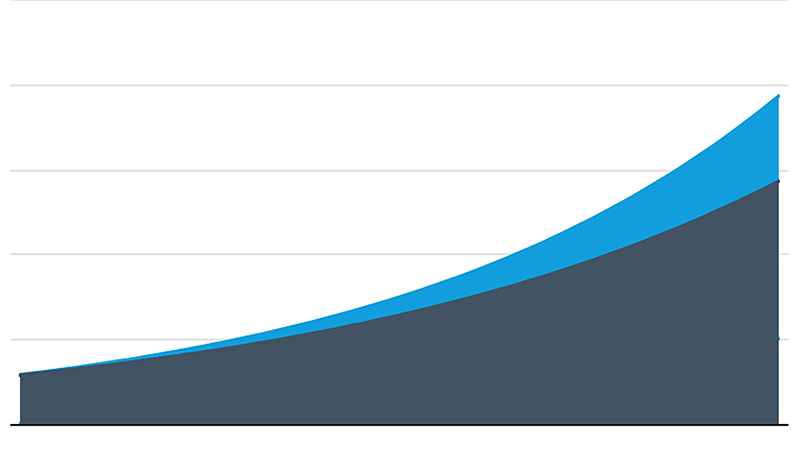ETFs
Schwab ETFs can provide straightforward access to broad asset-class exposure for building the foundation of a diversified portfolio.
Stretch your investment further
Pay less than $0.10 per $100 invested with each Schwab Equity and Fixed Income market cap weighted ETF.
Learn more about how Schwab market cap index ETFs and how their costs compare.

Our approach
In today’s environment of ever-increasing complexity, we stay focused on the core of an investor’s portfolio. We provide a set of competitively priced ETF products, including low-cost market cap index and strategic beta strategies. Each of these can play an important role in a portfolio, and combining them can help provide better diversification and the potential for more attractive risk-adjusted returns across various market cycles.


Expenses among the lowest in the industry
We have sought to eliminate cost as a hurdle to investing in our products. With our targeted set of low-cost Index ETFs, we seek to share the benefits of our scale and efficiency with investors, and the financial professionals who serve them, wherever we can.
What we offer
With over a decade of experience in the industry, we are one of the nation’s largest and most established ETF providers. Our core strategies span both the broad-based equity and bond markets. We offer a carefully designed lineup of low-cost market cap index and Fundamental Index® ETFs that can be used as part of the foundation of a diversified portfolio.
Schwab market cap index ETFs
Schwab ETF expenses are among the lowest in the industry. Over 90% of Schwab market cap index ETFs have expenses lower than 0.10%, asset-weighted average total expense ratio of 0.05%.2 The ETFs track an index of securities that are screened and weighted based on the size of their market capitalization, with the largest weights assigned to the largest companies, which helps advisors build a diversified portfolio for their clients.


Schwab Fundamental Index ETFs
While fund expense should not be the only factor in choosing a strategic beta strategy, selecting a strategy with a low expense ratio remains an important consideration—especially over long time horizons. The average total expense ratio for Schwab Fundamental Index ETFs is 0.28%—lower than the industry average of 0.46% for Fundamental Index ETFs,3 and the average expense ratio of 0.45% for multi-factor ETFs.4
Educational resources
Do you have questions about ETFs, but don’t know where to find the answers? Check out the ETF education hub for the knowledge you need, from basic to advanced.
ETF education hub
Explore tools, analysis and insights designed to help advisors refine their ETF strategy and help meet their clients’ financial goals.

